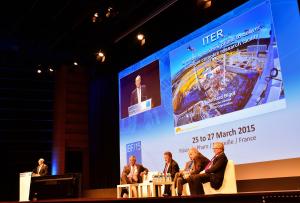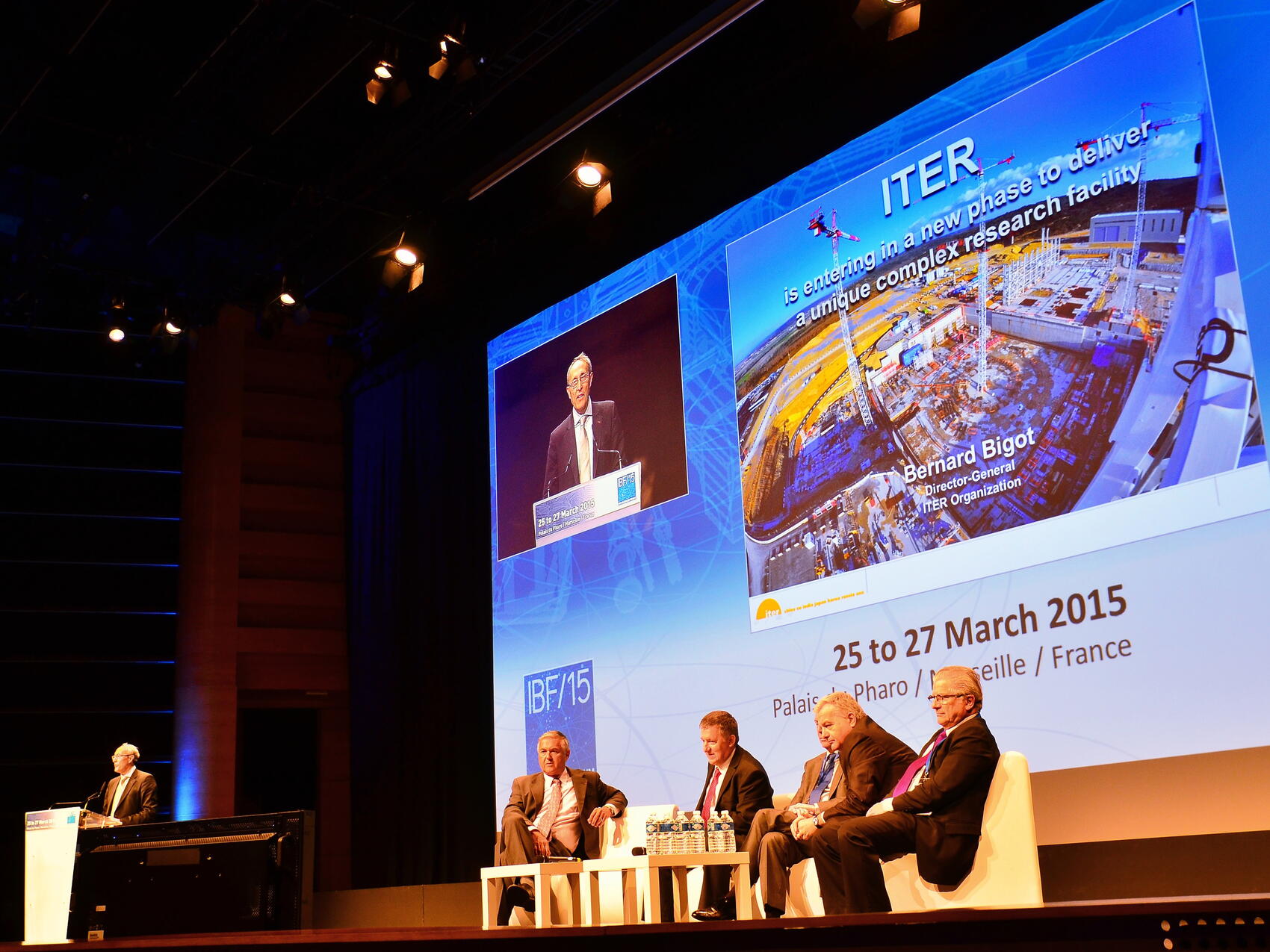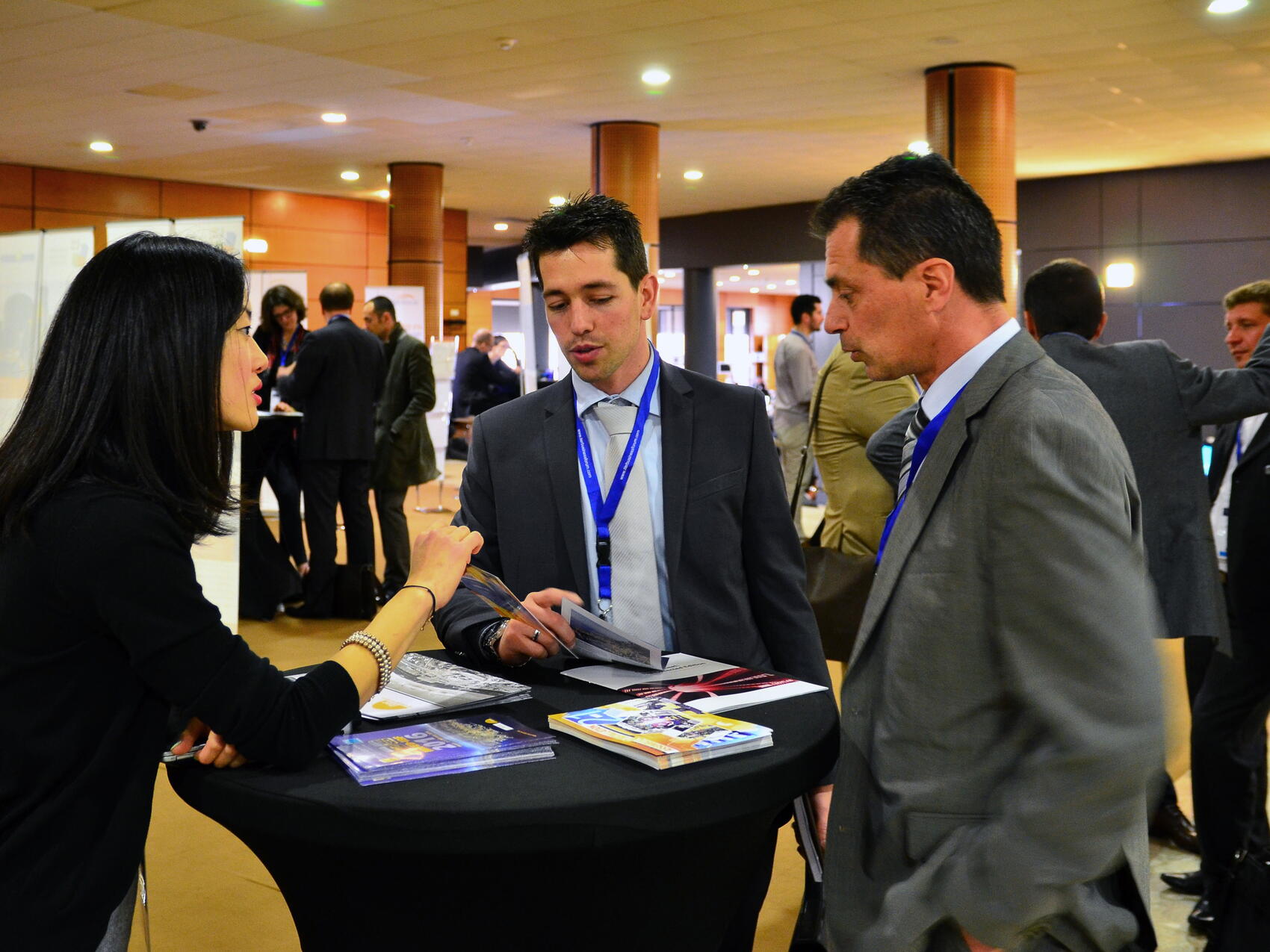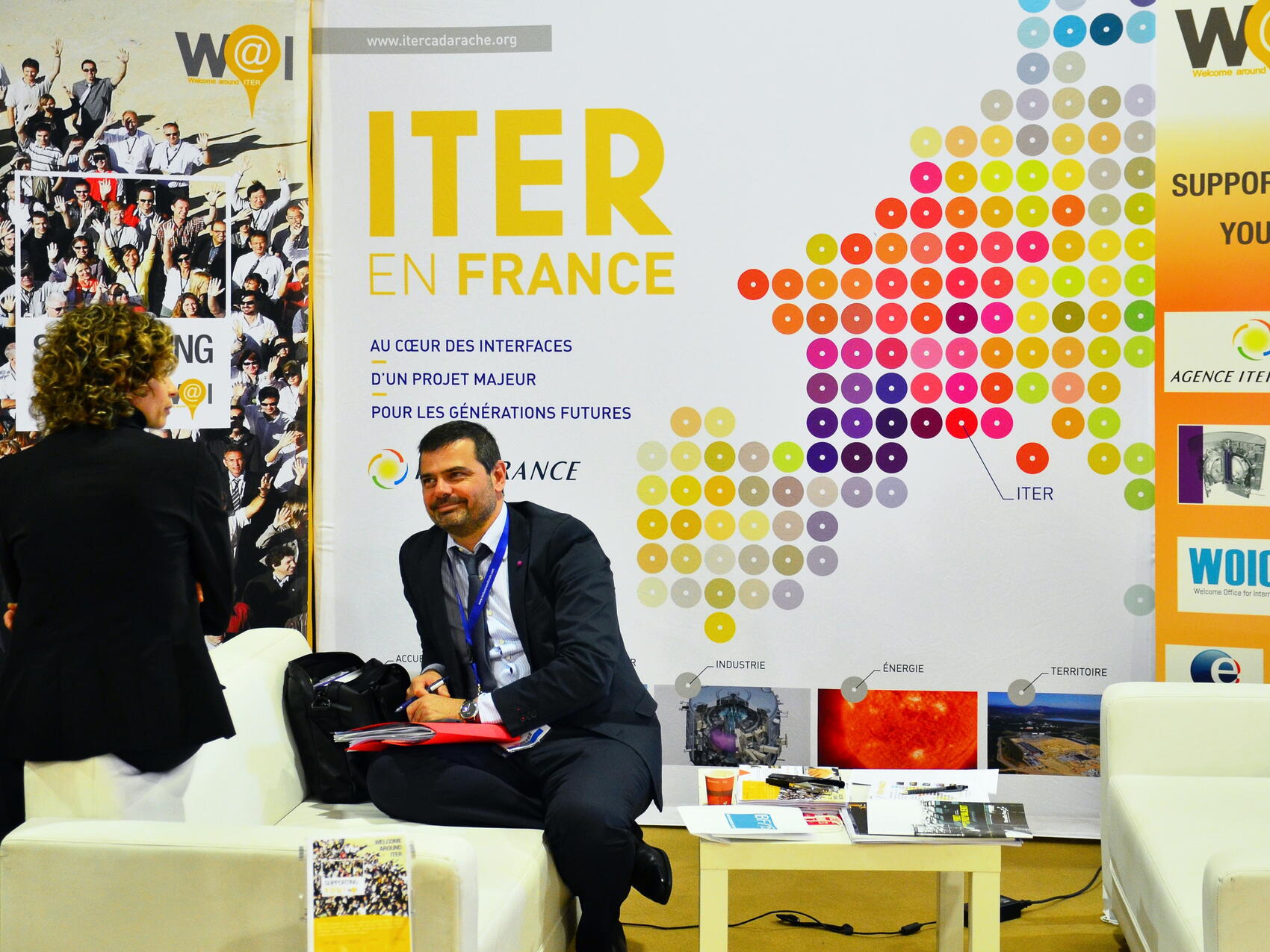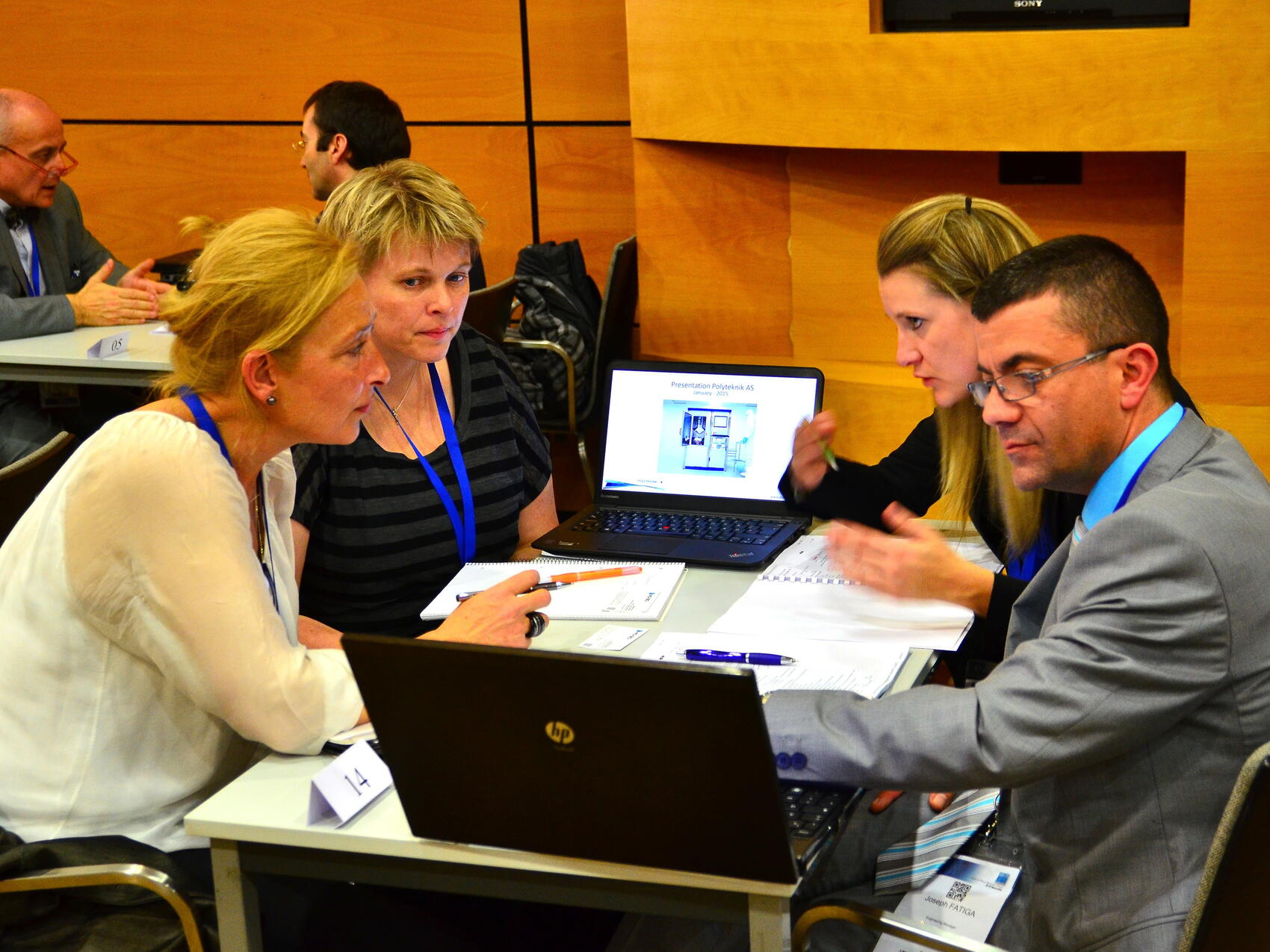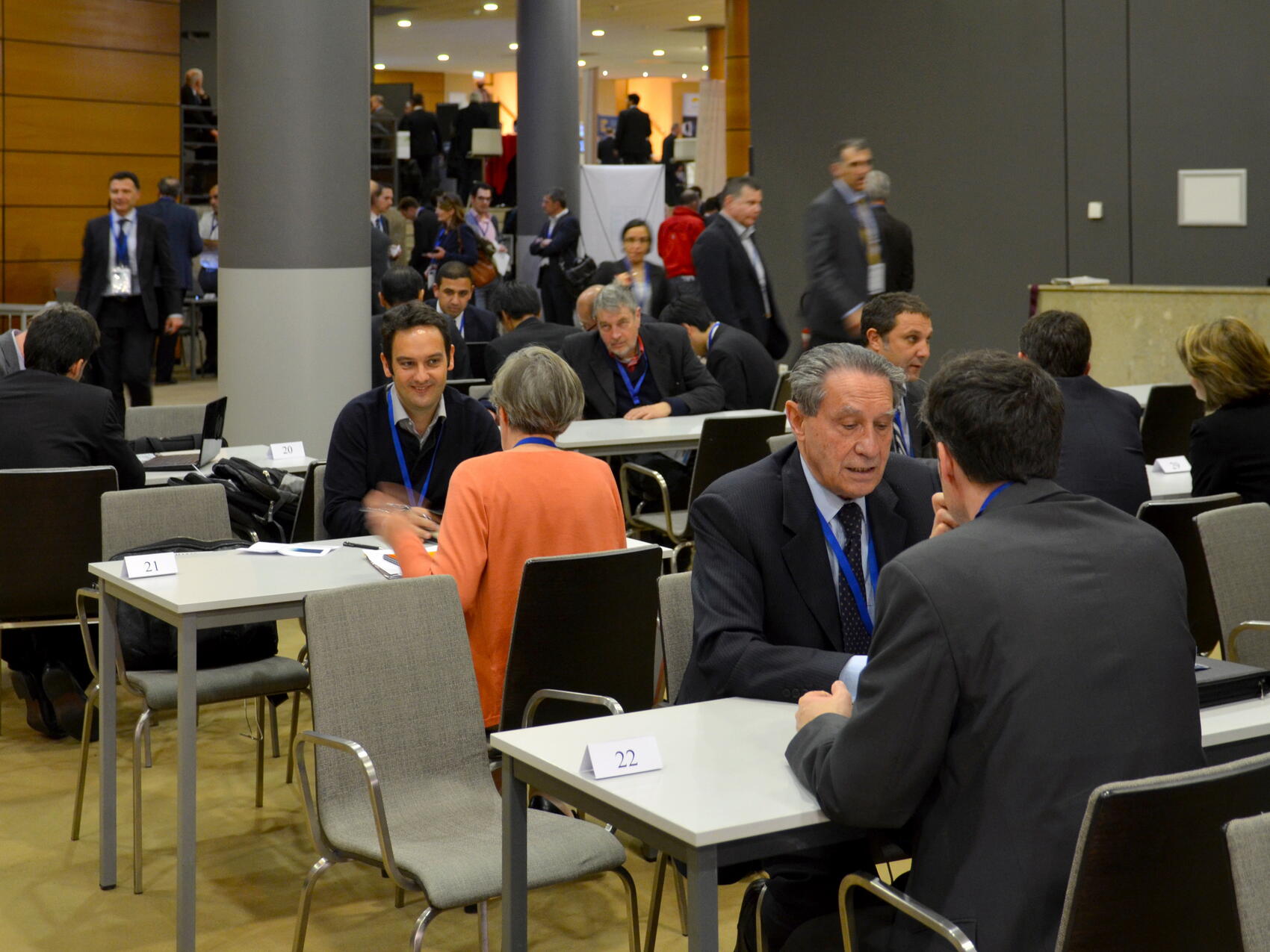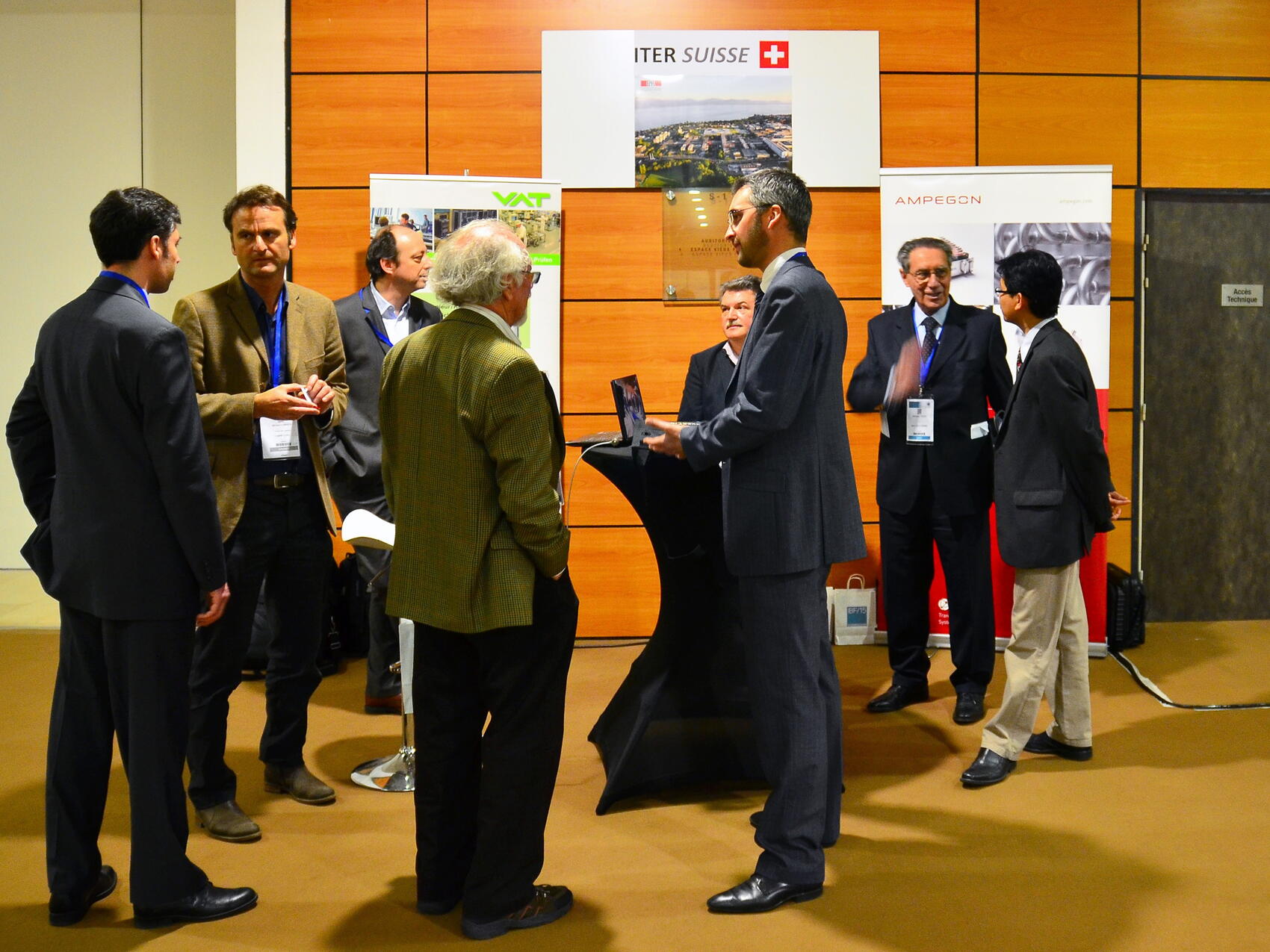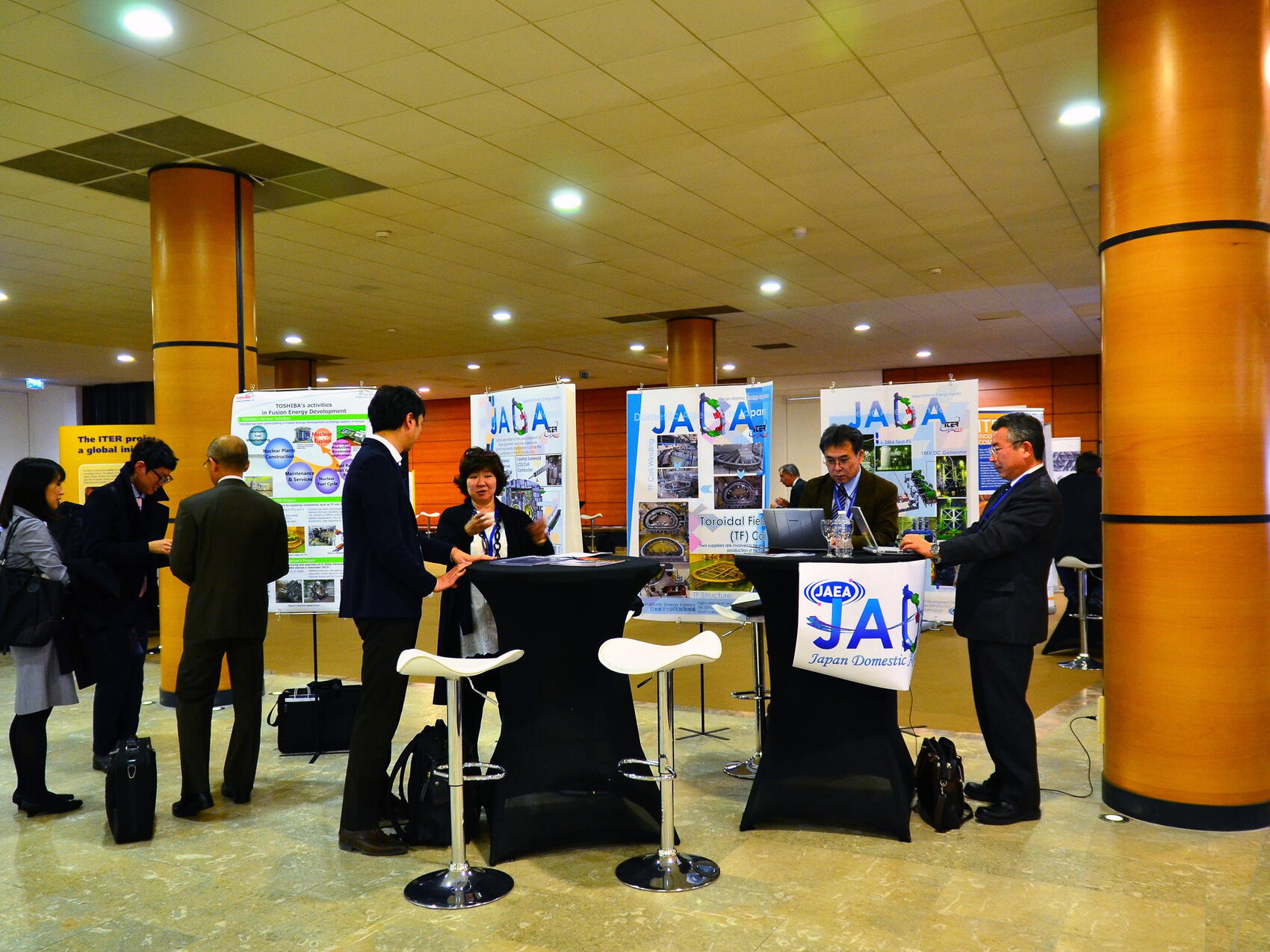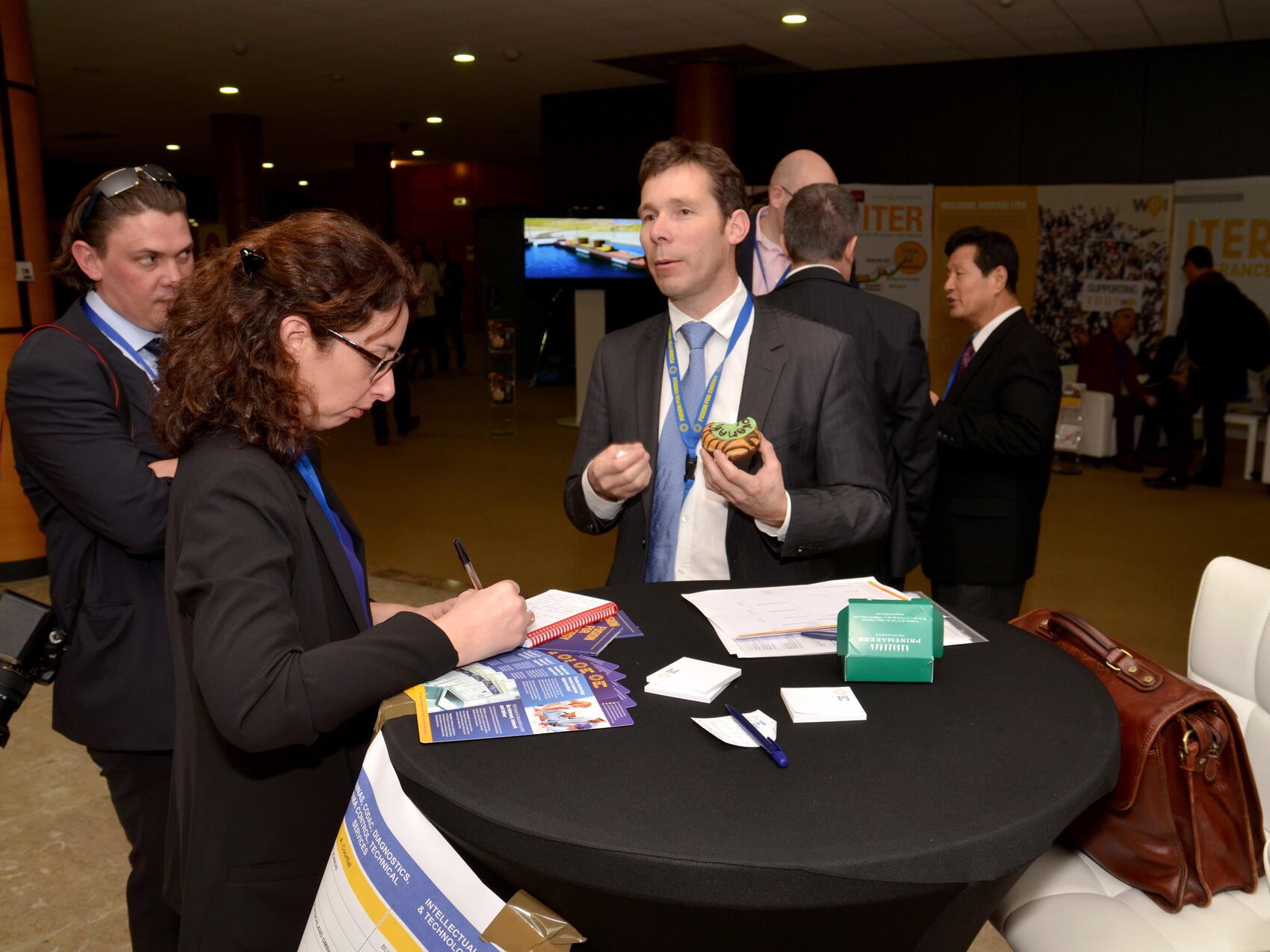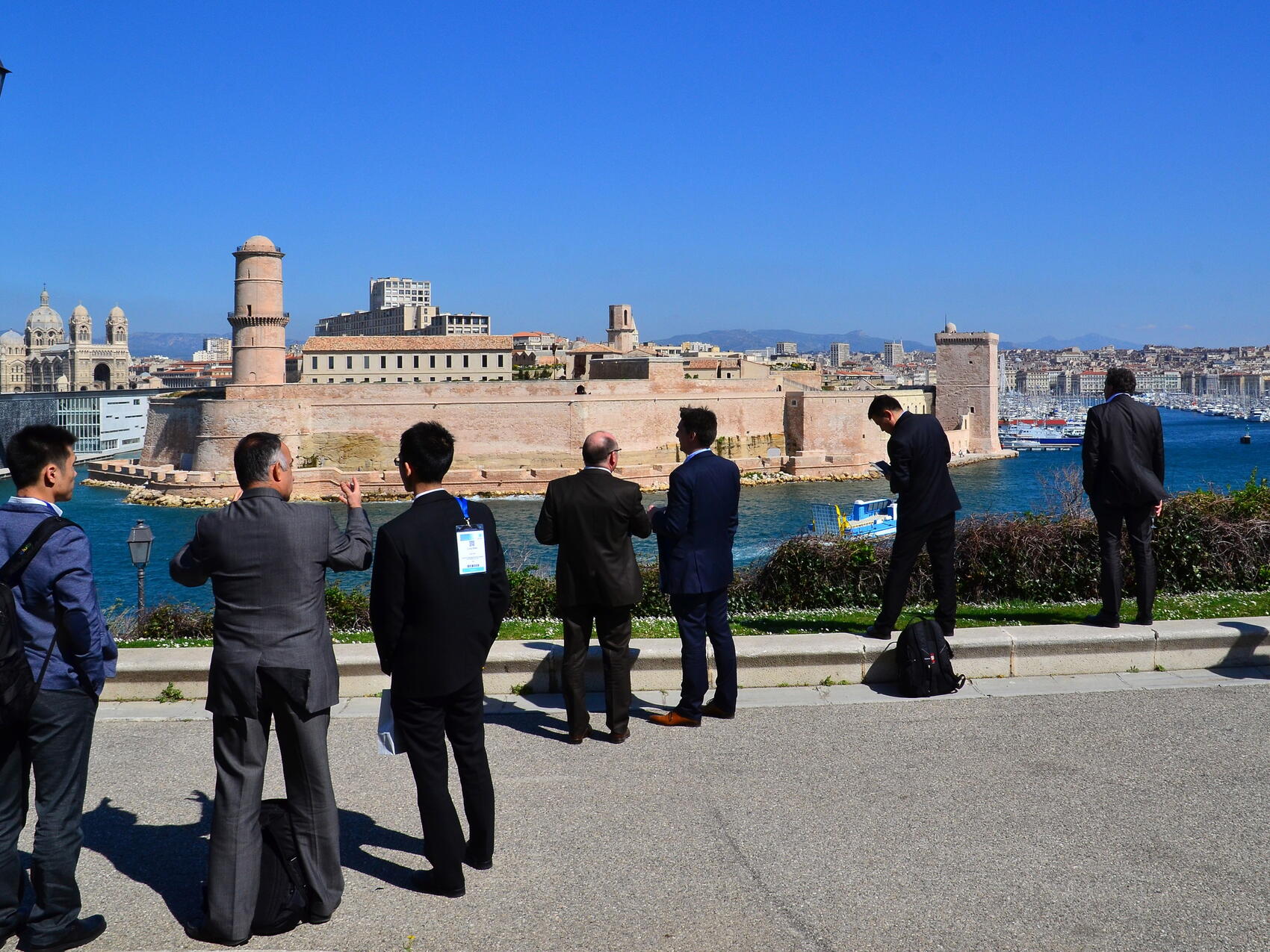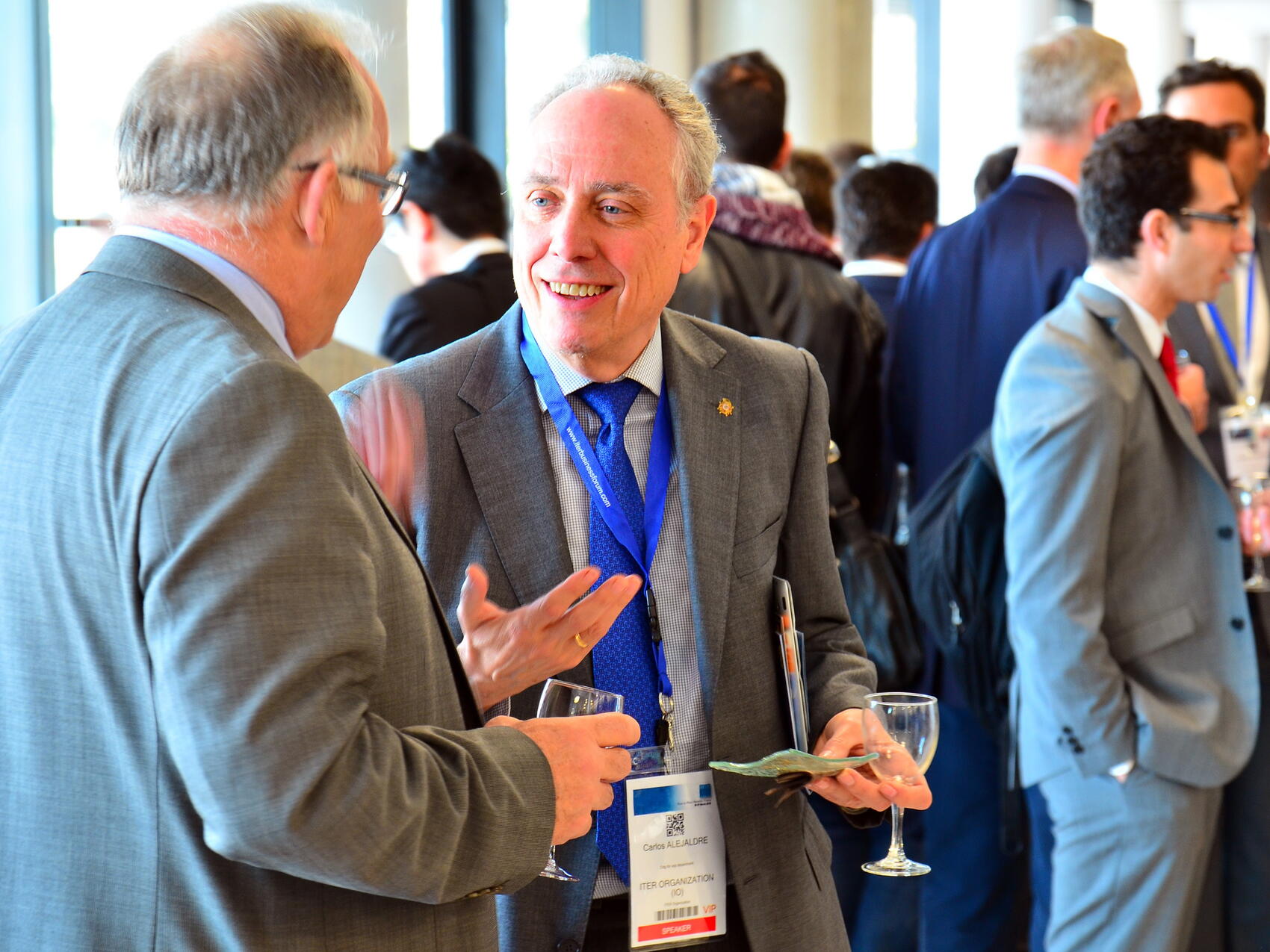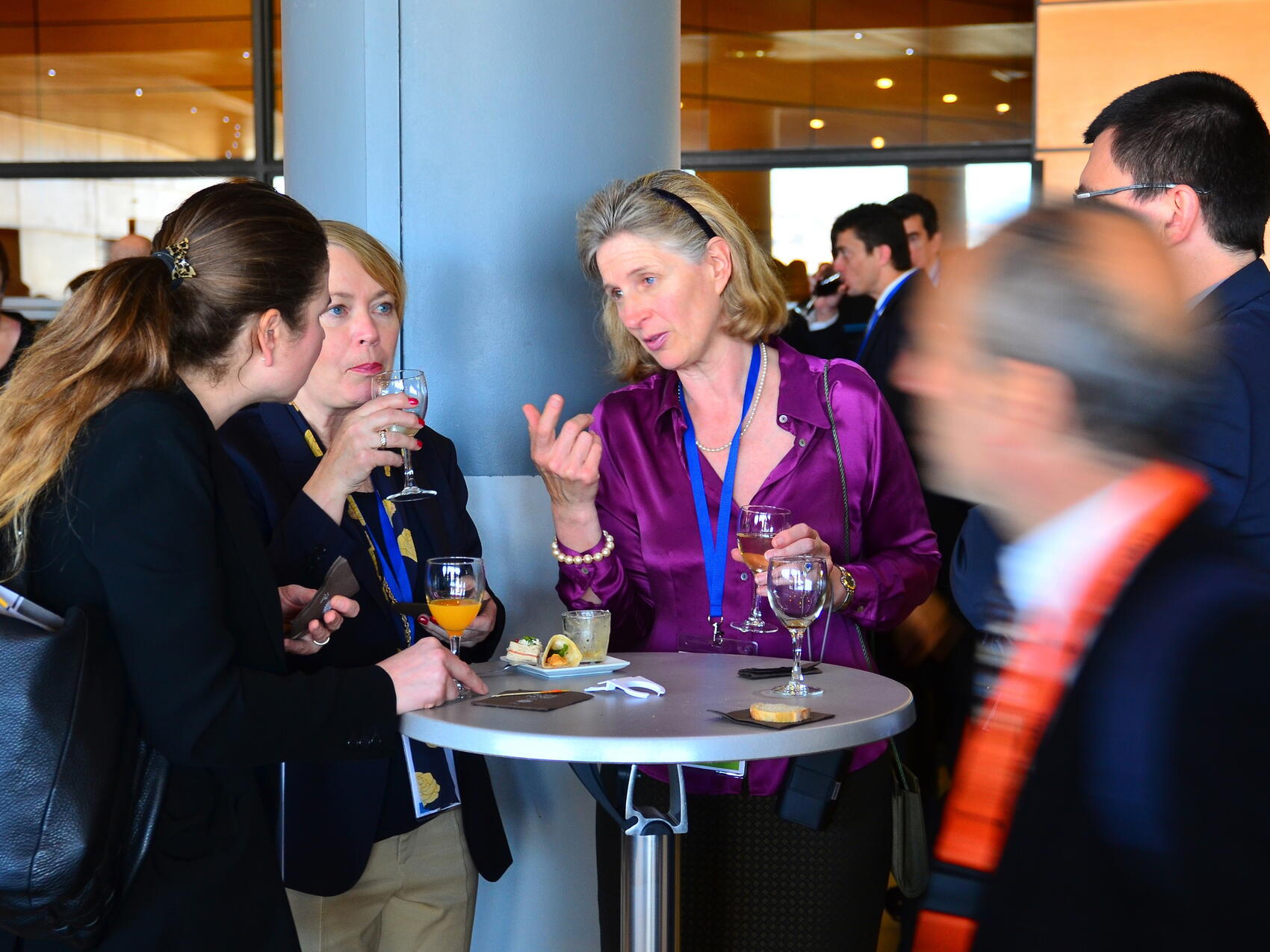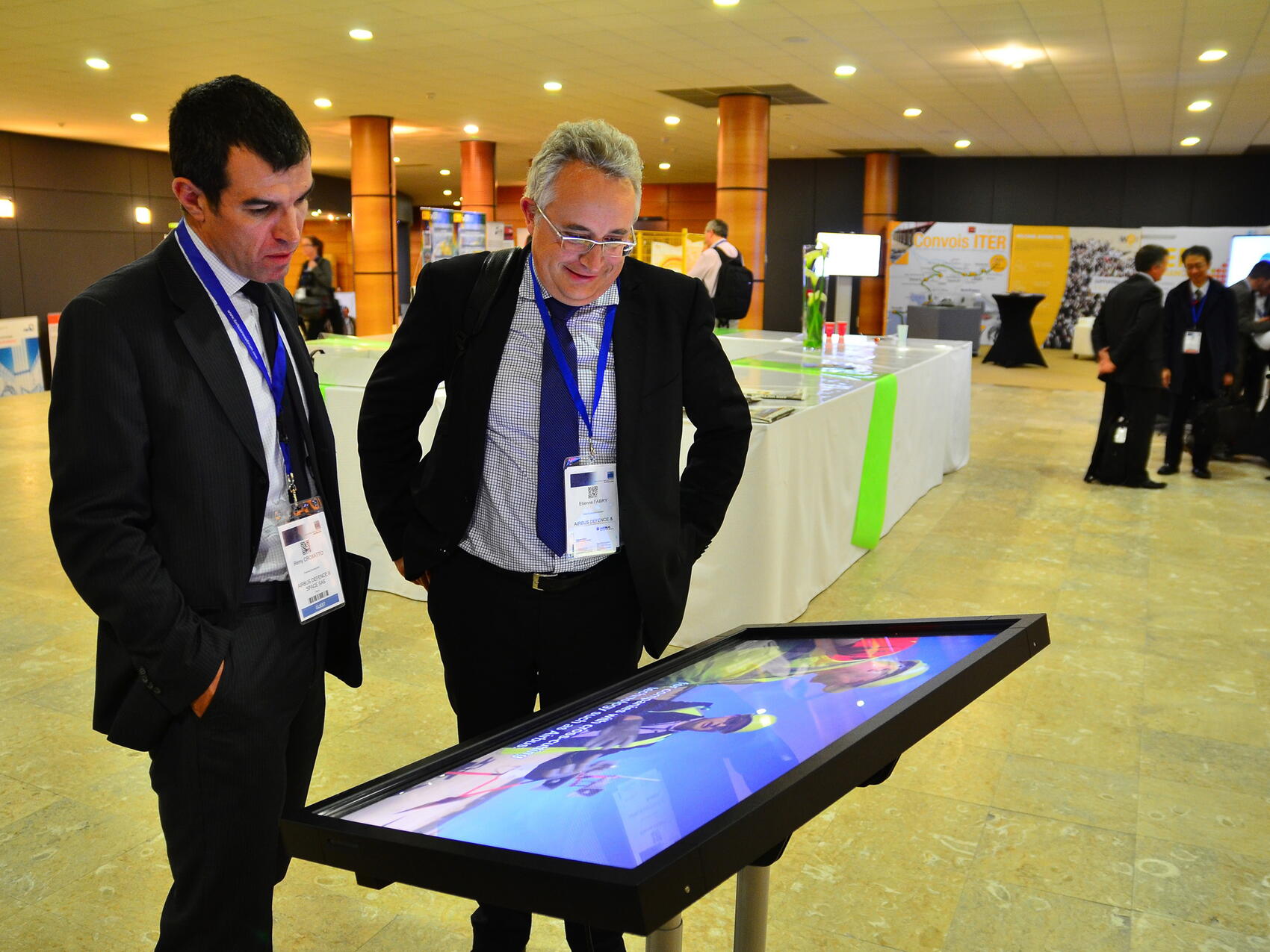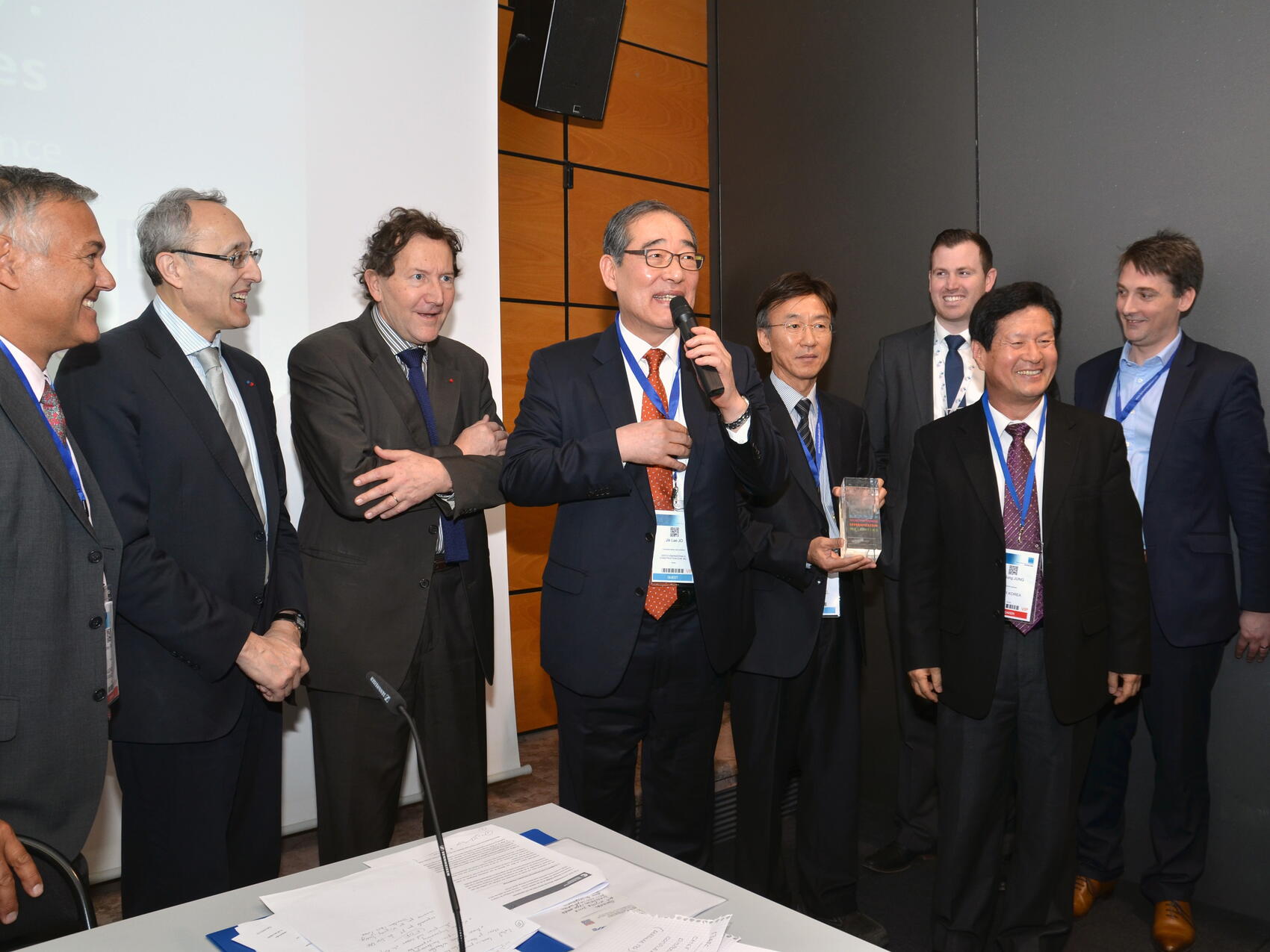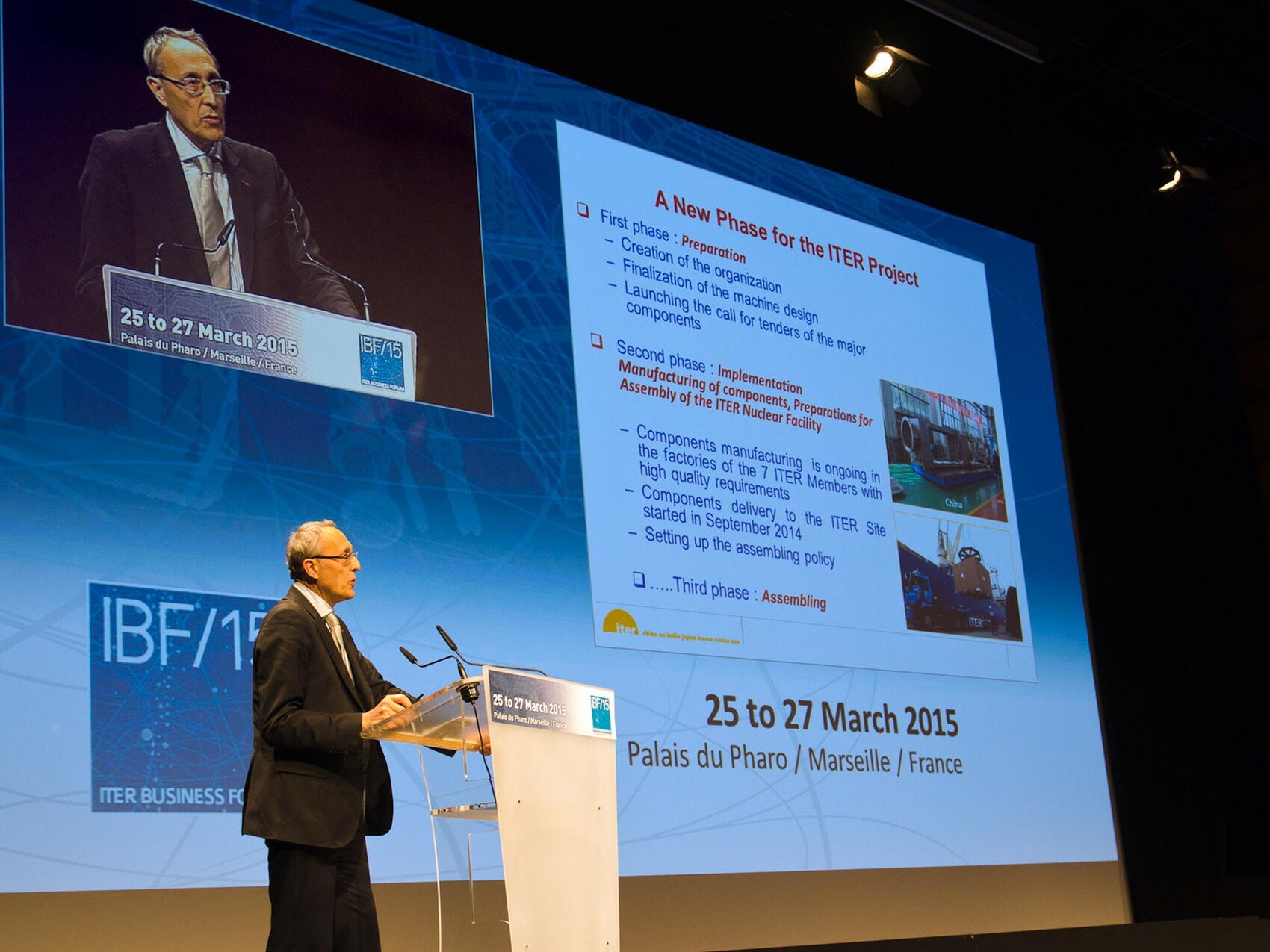Business in the palace of the Empress
In 1855, in an early example of crowd funding, the citizens of Marseille decided to offer Empress Eugénie, the wife of Emperor Napoleon III, a sumptuous palace overlooking the Old Port of Marseille. However the imperial couple never had a chance to open the windows on to the magnificent view the palace commands: the Emperor was deposed in 1870 before construction was complete and the palace was returned to the city and transformed into a school of medicine. In the 1990s, as an underground auditorium and conference rooms were added to the venerable edifice, the Palais du Pharo began a new life as conference centre. It is in this unique setting that the 5th edition of the ITER Business Forum was held on 25-27 March.
Since its first edition in Nice, France (2007), the ITER Business Forum has been the place where representatives of industry, large or small, can access in-depth information about the ITER Project, its progress, needs and forthcoming tenders.
It is also the place where a representative from a giant company like Mitsubishi (Japan) or KEPCO (Korea), can sit at the same table as a manager of a four-person business in Holland and discuss business and partnership opportunities. What can you do for me? What can I do for you? Can we combine our expertise for ITER?
Attending conferences and presentations, meeting "one-to-one" with other companies, or visiting the exhibition hall, were more than 860 people from the industries or laboratories of 26 countries, representing an exceptionally wide range of expertise.
For Sabine Portier, the French ITER Industrial liaison officer (and the key organizer of the event together with her colleague Philippe Olivier), there is reason to be satisfied: "We have registered a record number of attendees ─ this is the sign of a growing interest in ITER from industry worldwide. They understand the huge challenges of the project and they're willing to tackle them. In terms of expanded expertise and also of image, ITER can bring considerable benefits."
"We're a small company in Denmark specialized in machining stainless and high alloy steels," explained the sales and export manager for Triplecut A/S, Jacob Hougaard. "Does a project like ITER need our competence? I believe so, but we're small and we lack visibility. So the problem for us is to meet the right people and this is the perfect place: I have 9 one-to-one meetings scheduled with companies that, for the most part, are already involved in ITER. I'm trying to find how we can fit into the big picture."
Unlike Hougaard, Cock Heemskerk, from Holland, is already an ITER Business Forum veteran. His four-person company, Heemskerk Innovative Technology BV, is specialized in remote handling procedures and simulations. For some time now, it has been involved in the new, "more remote-handling-friendly design" of the mobile mirror that reflects and redirects the energy beam of the ITER electron cyclotron upper launchers.
"But like any company," he smiles, "we would like more contracts. And this is the place where I know I can make contacts with all the Domestic Agencies that are procuring systems for ITER and show them what we can do. I have set up ten appointments over two days and I have a movie to show that is irresistible..."
His company has already benefitted from its association with ITER. "By pushing us to the limit of what is doable, ITER has expanded our expertise," says Heemskerk. Another smile and he adds: "I have a long-term vision, both for ITER and for my company..."
With a plenary session and 14 thematic workshops organized with the support of the ITER Organization, the ITER Domestic Agencies and their main suppliers, the 2015 edition of the ITER Business Forum provided a broad overview of the status of the project as it enters a new and crucial phase.
"Ten years after the Members decided to build ITER in Saint-Paul-lez-Durance, France, we are now fully engaged in the industrial phase of the project," said ITER Director-General Bernard Bigot to the members of the press who covered the event. "Contracts of EUR 6.5 billion are underway for ITER construction and manufacturing."
"In Europe," added Jean-Marc Filhol, who heads the ITER Department at the European Domestic Agency, Fusion for Energy, "it can be estimated that contracts with industry are already creating over 15,000 person-years of employment."
Close to ITER, where approximately 1,500 people work for the ITER Organization, Agence Iter France or Fusion for Energy on site, 1,100 indirect jobs have been created over the past few years according to Jerôme Pamela, director of Agence Iter France. Companies that have opened offices or agencies close to the ITER site have created 400 jobs locally.
Two of them—KEPCO from Korea and Amec Foster Wheeler from Great Britain—received the label "Invest in Provence" during the business forum from the hands of the President of the Marseille-Provence Chamber of Commerce.
Eight years ago at the time of the first edition of ITER Business Forum, site clearing activities were just beginning and only one Procurement Arrangement—the documents that govern the procurement of plant systems, components, or site construction—had been signed. The platform is now teeming with activity, two large buildings are completed, 16 others are at various stages of construction and the number of Procurement Arrangements has passed the 104 mark (out of 139), representing 90.53 percent of the project's total in-kind value.
And in factories on three continents, the ITER machine is becoming more and more tangible every day.

